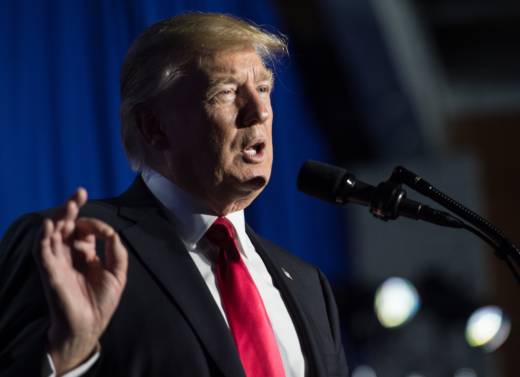There's no uniform -- or legal -- definition, but sanctuary cities are generally defined as governments that restrict their law enforcement agencies from cooperating with deportation enforcement actions. What that means can vary from county to county or city to city; Los Angeles' policy is a decades-old Police Department order, while San Francisco has actual laws on the books limiting city employees' ability to interact with Immigration and Customs Enforcement, or ICE.
To define a sanctuary city in the executive order, Trump cited a section of federal law that states local agencies must communicate with federal immigration authorities. But Angela Chan, an immigration attorney at the Asian Law Caucus, said every single police agency in the nation already does that -- they send ICE the fingerprints of each and every person who is booked into custody.
What cities like Oakland, San Francisco and Los Angeles don't do is hold a person in jail so that immigration agents can pick them up for deportation if they should be released otherwise. So Chan said it's unclear which jurisdictions Trump's order would actually apply to.
The order leaves it up to the U.S. attorney general and secretary of the Department of Homeland Security to decide which cities would have funding withheld.
Chan said she believes the order was purposely vague because there are several court cases dealing with states' rights that could make it difficult for the Trump administration to legally require cities and counties to enforce immigration law -- and that limit what funds they can withhold from cities and counties.
"They are well aware of many, many court decisions that have found ICE detainers to violate the constitution -- because they constitute unreasonable search and seizure. So they know many actions of ICE have been found to violate the constitution, and so there are limits to what they can do," Chan said.
What sort of money could be withheld is also up for debate. The order cites "federal grants," but the U.S. Supreme Court has held that the federal government can't coerce states into instituting federal policies by withholding money unrelated to that policy.
In other words, law enforcement grants may be fair game, but grants unrelated to immigration or police work are probably out of bounds. San Francisco, for example, gets nearly $1 billion in federal funds each year, but only about $10 million in law enforcement grants.
San Francisco City Attorney Dennis Herrera said the vague nature of Wednesday's order makes it difficult for city leaders to respond just yet, but he said it's ironic that Trump is enacting these orders in the name of public safety.
"To me, it's incredibly disheartening and disappointing that the president is scapegoating the immigrant community throughout the country, and in particular those that have sanctuary policies ... designed to help law enforcement keep the streets safe," he said, noting that these policies were designed in part to ensure that immigrant communities felt comfortable reporting crimes to police.
Herrera said he doesn't expect anything to happen quickly in terms of moves to strip funding from cities like San Francisco, "but the second we got wind of something threatening our city, its laws and policies, rest assured we would do what we need -- including going to court."
